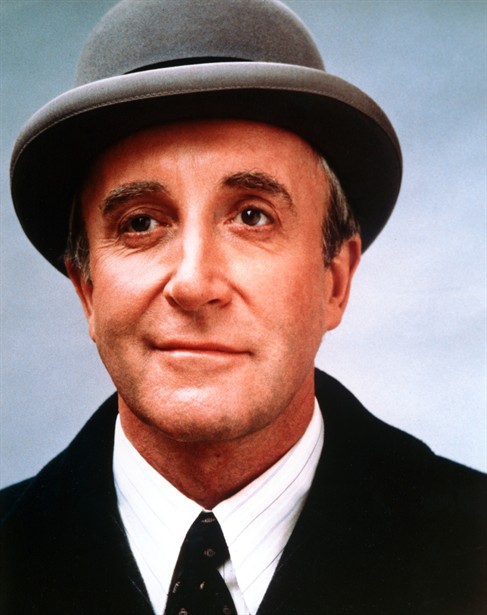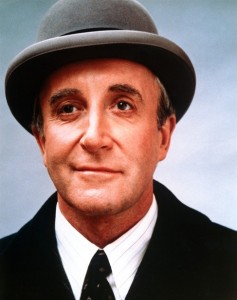 If you seek power over others, how much of an advantage does raw intelligence gain you?
If you seek power over others, how much of an advantage does raw intelligence gain you?
If you look at the makeup of the US Congress — which now has a 9% percent approval rating — or if you watch the Republican debates, you are not immediately inclined to label either the smart set. In fact, you have to be a dim bulb to repeatedly say many of the things that seem necessary for electability. On the other hand, a certain amount of cleverness is obviously necessary to outwit the media and your opponents.
Which is it? Two films that explore the relationship between power and brains are Being There (1979) and Limitless (2011). The films came out thirty years apart but deal with the same issues. Being There suggests that being dumb as a chicken is a huge advantage for those who seek political success. Limitless suggests that politics is the inevitable trajectory of a person who is far more intelligent than everyone else. Which is more realistic?
I’ll state my own view up front: politics is a gigantic waste of brains. If a person really has a gift for high-level thought, almost any profession would be a greater betterment to society and probably more self-fulfilling in the long run. Whereas it was probably once true that the political life attracted some of the best and brightest, it no longer seems true at all today.
Being There is both hilarious and serious, worth sitting down with at least once every few election seasons. Peter Sellers and Shirley MacLaine star in this adaptation of a novel by Jerzy Kosinski about an illiterate and simple-minded man named Chance who happened to be in the right place at the right time. His utterances are few and most concern what he has done his entire life, which has been to tend one garden on one estate and otherwise watch television.
When his benefactor dies, he is turned loose on the world and is taken in by a wealthy and influential industrialist who is close to the US president. His new caretakers mishear his name and call him Chauncey Gardener, and they mistake his stupidity and space-cadet ways for discreetness and quiet dignity.
Wearing the right clothes borrowed from the attic of his old house, and otherwise seeming to hold himself well and convey the right messages, Chauncey inadvertently leads everyone around him to think he is brilliant, well connected, a great lover, a worthy successor to the great men of our time, and, in the end, is even considered for president.
When he does speak, it is about the only thing he knows, which is gardening. People around him imagine that he is speaking in high-level metaphors. This happens in private and even on national television. He rises to such social heights that he is beyond negative judgment. The only person who knows the truth decides not to reveal it because to do so would be such a crushing blow to people he loves.
Unrealistic? Not so much. The only reason we tolerate the blather from the political class at all is entirely due to power and position of its members. If you put the same thoughts and ideas in the mouth of your neighbor, you would find him tedious, annoying, and largely deluded.
You can try an experiment using C-SPAN. Watch any random subcommittee hearing sometime and replace the faces you see by imagining the same said by the clerk at the convenience store or the worker laying asphalt in a new subdivision. Only then do you fully realize: the real talent of these clueless people is the ability to fake it for extended periods.
Much of our perception of the relative weight of a person’s words is due to the significance of the person using them. How else can we explain how the chairman of the Federal Reserve gets away with giving several speeches and testimonies per week that consist of nothing but long strings of platitudes, buzzwords, and long-refuted fallacies?
And it is the same with every head of every main government agency. They only get away with this because the media play along, never really asking serious questions that deal with fundamental issues or call upon a serious use of brain power. The unstated rule among those covering Washington is to never challenge the stupidity of big government itself. This pertains in those political debates, in committee hearings, or in any press conference.
Being There has been popular for so long among smart film critics precisely because it seems to account for so many political successes. It was once said to apply perfectly to Ronald Reagan. I couldn’t say. All evidence suggests that it explains George W. Further, I’ve watched the presidency of Obama, and the Chauncey effect here is completely undeniable. The frenzy that once surrounded his presidency (but probably not so much anymore) was wildly out of proportion to the reality.
Being There is more of a commentary on those around Chauncey than Chauncey himself. He never really wanted all this attention and it was never clear that he even knew what was happening around him. He was a happy man just experiencing life as it came to him.
The trouble was that as soon as he entered society, he bumped into many needy people. An aging industrialist needed an heir, and he fit the bill. His wife needed a younger and similarly heroic new and virile husband. Match. The servants in the household needed a new and distinguished visitor, the media needed a star, the president needed an adviser without baggage, and finally the establishment needed a new president. Chauncey was there. He never wanted it, never sought it, but he was there.
The tendency to find vessels for our dreams and worship fakes of our own creation is a universal one. It happens in every sector of life. But no sector is more replete with this problem than politics. The entire show is based on fundamental myths.
The candidates talk about their “vision” for America as if one man can remake a country in his own image merely upon being sworn in. It is not possible and that’s fortunate for us. It is a despotic longing. And yet people cling to these visions as if this one person can somehow become a conduit for realizing all their likes and dislikes throughout the whole of society.
In this sense, every candidate is Chauncey Gardener — a complete fake that voters themselves construct as part of a national ritual. It is a ritual rooted in a lie that government is anything but what it is, which is an agency of force that enables us legally to steal from each other. Government is not wise, it is not compassionate, it is not a creator of anything. It is a stupid, clumsy, and malevolent agent of legal compulsion, and nothing more.
 Limitless — starring Bradley Cooper and Robert Di Niro — turns the plot of Being There on its head. A failed and down-and-out novelist is given a drug that allows him dramatically heightened ability to think clearly and thoroughly. His IQ soars to four digits and, suddenly, he can make great use of every bit of data that resides in the recesses of his brain.
Limitless — starring Bradley Cooper and Robert Di Niro — turns the plot of Being There on its head. A failed and down-and-out novelist is given a drug that allows him dramatically heightened ability to think clearly and thoroughly. His IQ soars to four digits and, suddenly, he can make great use of every bit of data that resides in the recesses of his brain.
He turns his life around, finishes the novel in a few days, and it becomes a bestseller. He turns to stockpicking and becomes rich in a matter of days too. He is then recruited to mastermind the largest corporate merger in history. Eventually he turns to politics, and we are somehow led to believe that this is the culmination of his excursion into the realm of advanced thought. The plot is energized by the scarcity of the pills and his quest to find more.
One merit of this film is its focus on intelligence as the key to amazing life performance. As I thought about it, I realized that very few comic book heroes are known for their distinctive ability to think as the main source of their power. They have physical strength, the ability to fly, the capacity to stretch or freeze, x-ray vision, or whatever, but none are known for amazing intelligence alone. It’s usually the villains who are smart and they are always beaten in the end.
Kudos, then, for this film for recognizing that thinking is far more important in the scheme of things than power and might. This is an unusual message that speaks an important truth, and it is a rare thing to see this featured in a movie.
On the other hand, the film completely stumbles with this idea that someone in this position would naturally gravitate to becoming a senator. Anyone with a high-powered brain would likely steer clear of such a thing. If you could make millions in days of stock picking, outsmart every corporate attorney in the world, save lives through medical research, speak any language after hearing it once, and so on, that person would surely dedicate himself to being part of the flow of real life, not becoming a mime in the mythical world of politics, where they pretend to hold the world together through legislation and regulation while we pretend to believe in their ghastly “visions” for how we should manage our lives.
If everyone in government were like the smart guy in “Limitless” we should seriously fear for our lives. Fortunately for us, government is more like Being There in two respects: its power and ways attracts and retains people with neither vision nor distinctive intelligence, and, institutionally, it lacks the means finally to rule a world of seven billion people with their own ideas of how to conduct their lives.
[TLS]
















Comments on this entry are closed.
Matthew Alexander December 3, 2011 @ 10:11 am | Link
“The only reason we tolerate the blather from the political class at all is entirely due to power and position of its members. If you put the same thoughts and ideas in the mouth of your neighbor, you would find him tedious, annoying, and largely deluded.”
Boy, isn’t that the truth! This statement is backed up by studies that find people have vastly different opinions, about the same nonsense statements, depending on who they think uttered them.
Nice article!
J.D. Tuccille December 4, 2011 @ 8:47 pm | Link
Very well put. I remember seeing “Being There” when it first came out in the theaters — at a brief moment when mass delusions about politicians and political power were at an all-too-rare low ebb. The story was a wonderful commentary not just on politics, but on people’s sad need for heroes and saviors, and the delusional and dangerous paths down which this can lead us all. I haven’t seen “Limitless,” but I’ll take your plot summary as an indication that it marks a return to the belief that the “right” people, should they go into politics, can do good.
Of the two movies, “Being There” is just inherently more sophisticated, and worthy of a permanent place in everybody’s library.
Geoffrey Allan Plauché December 5, 2011 @ 9:30 pm | Link
J.D.,
You’d think Bush, Obama, and a lackluster Tea Party would put a damper on that somewhat.